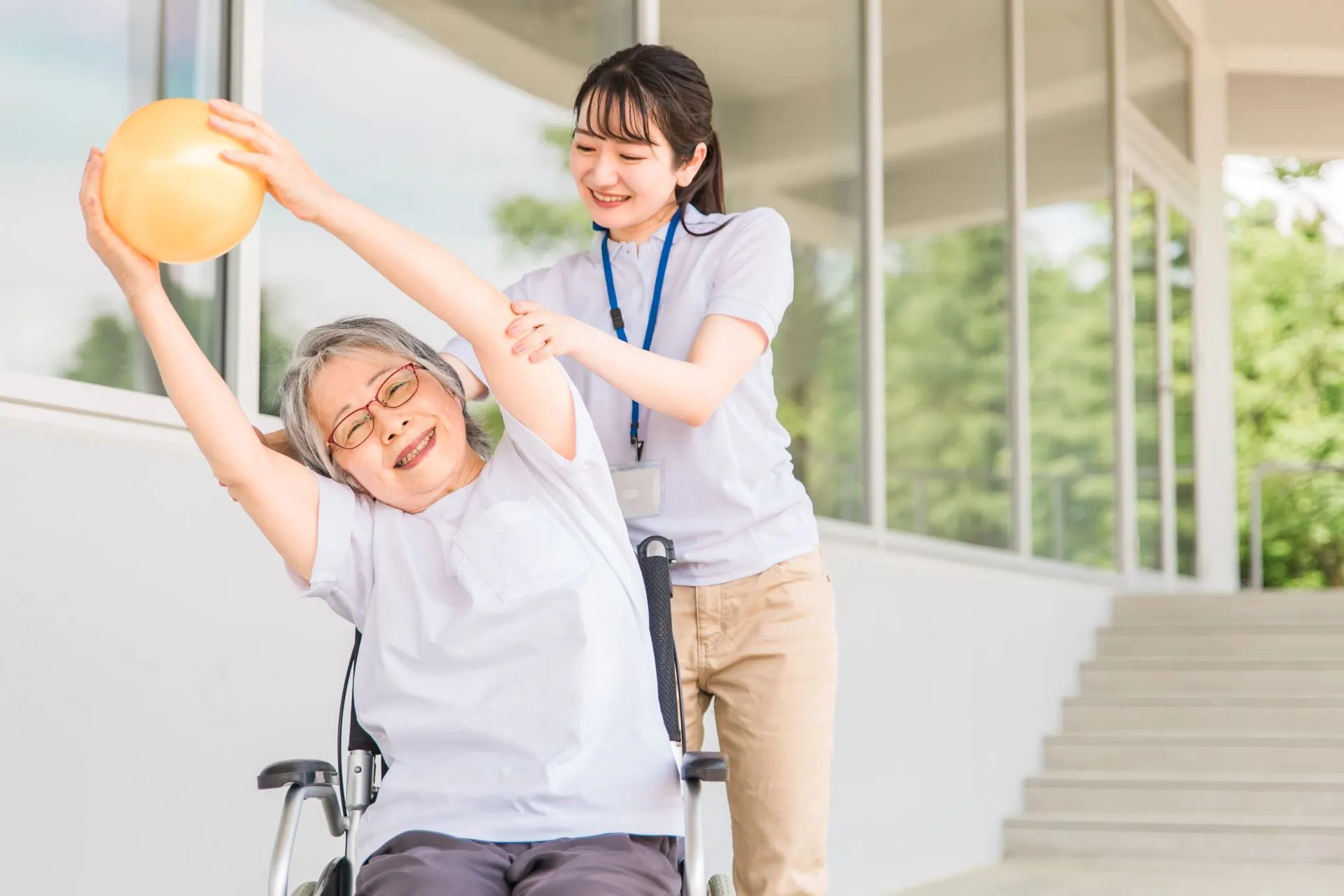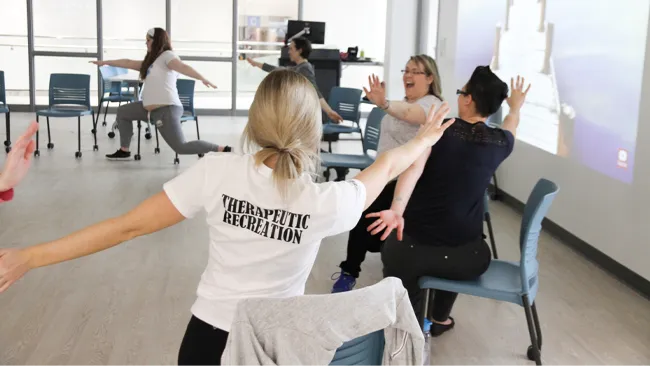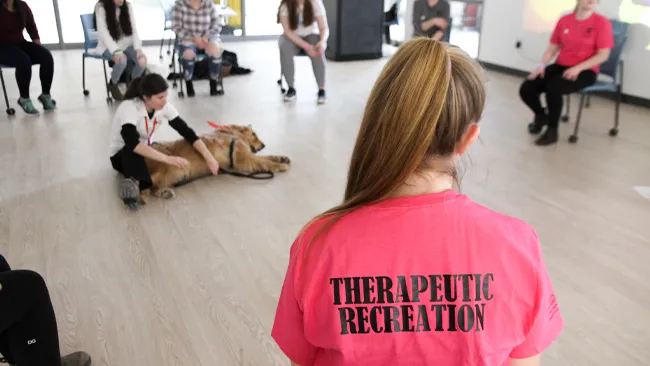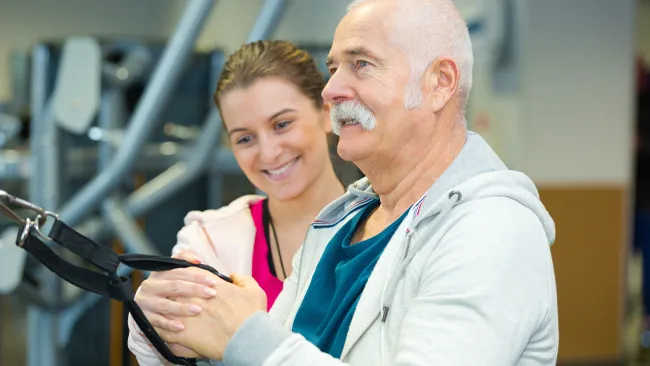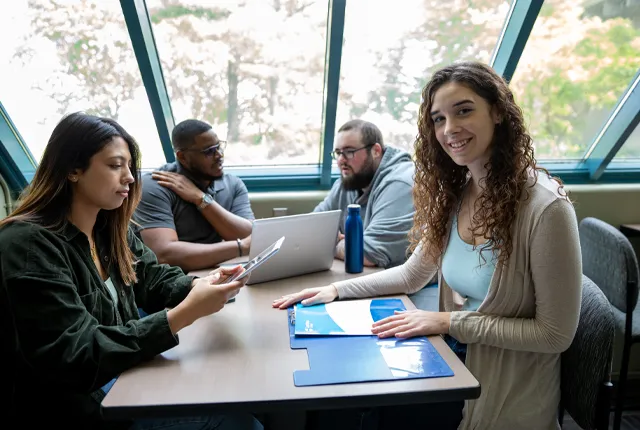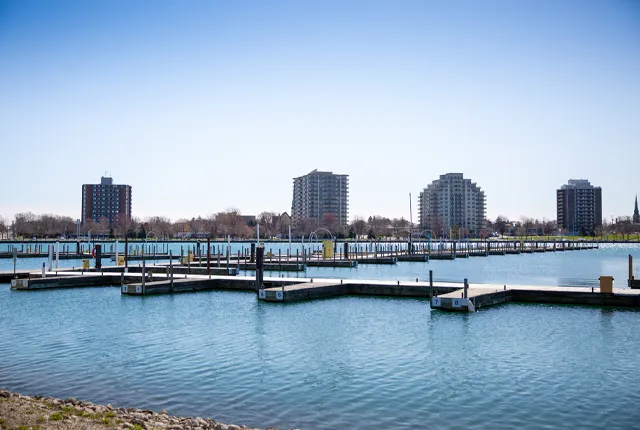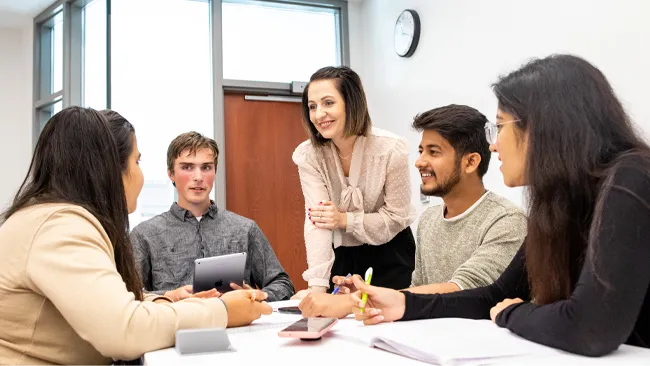
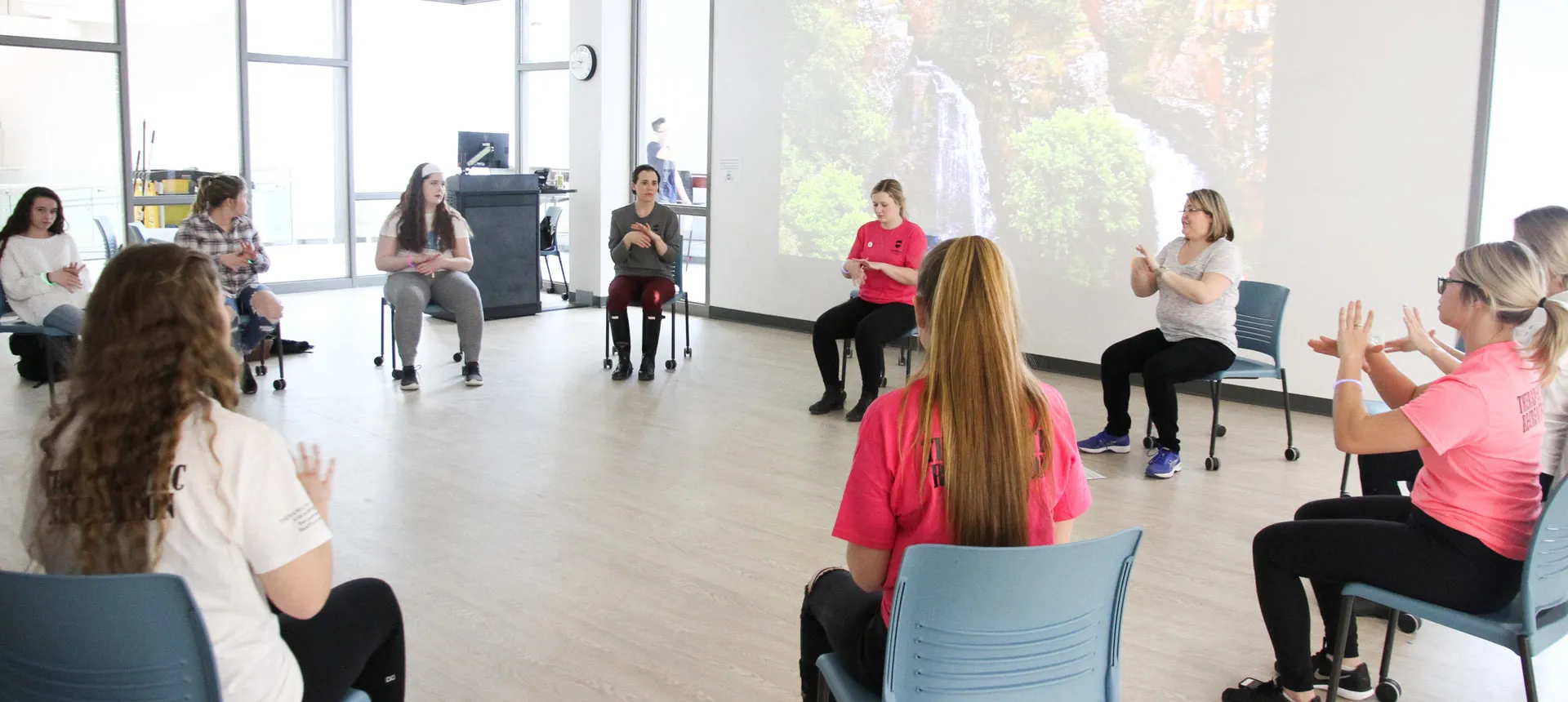
Recreation Therapy - Accelerated
Overview
Assist individuals who have a wide range of cognitive, physical, social and emotional limitations achieve a higher quality of life within the field of recreation therapy.
This accelerated one-year program provides a fast-track opportunity for students with the proper admission requirements.
Using the therapeutic recreation process, recreation therapists work with persons with physical, cognitive, emotional and/or social limitations to acquire and/or maintain the skills, knowledge and behaviours that will allow them to enjoy their leisure optimally, function independently with the least amount of assistance and participate as fully as possible in society.
The goal is to enable all individuals to achieve quality of life and optimal health through meaningful participation in recreation and leisure. The profession recognizes the importance of the recreation experience and supports all individuals in having full access to and the freedom to choose recreation and leisure opportunities.
Reasons to Choose Lambton College's Program
Admission Requirements
A college diploma or university degree in fields such as:
- Developmental Service Worker
- Child & Youth Care
- Social Service Worker
- Early Childhood Education
- or similar programs
- and/or -
- A degree in a health related field
Additional course work may be required depending on the relevance of the applicant's degree or diploma.
The admissions process is competitive and meeting the minimum academic requirements does not guarantee admission.
Lambton College reserves the right to alter information including admission requirements and to cancel a program or course at any time; to change the program curriculum as necessary to meet current competencies or changes in the job market; to change the pathways to third-party certification bodies; or to withdraw an offer of admission both prior to and after its acceptance by an applicant or student because of insufficient applications or registrations or over-acceptance of offers of admission. In the event Lambton College exercises such a right, Lambton College's sole liability will be the return of monies paid by the applicant or student to Lambton College.English Language Requirements
- IELTS of 6.0
- or -
- TOEFL iBT 69
- or -
- Passed Lambton Institute of English placement test
Meeting the minimum English requirements does not guarantee admission. Students with higher English proficiency scores will receive priority in the admission assessment process.
Costs
Additional Fees
-
Name Tag$15.00
-
Passport to Placement Fee$40.00
-
CPR/First Aid$145.00
Costs Associated with Placement
Students are responsible for all costs associated with travelling to and from placement. A police records check will also be required to be eligible for placement.
Important Dates, Deadline & Late Fees
For additional information on registration dates, deadlines and late fees please refer to Registration Dates and Deadlines.
Student Fees
A student services fee is included in your tuition.
Health Insurance Coverage
Emergency medical insurance is mandatory for all international students at Lambton College. This includes students who are full-time and part-time and who are on a co-op. This insurance is provided by GuardMe - a third party insurance provider.
See Insurance Costs & DetailsTechnology Requirements
In order to keep pace with the requirements of each and every course in your program, Lambton College requires that each student have access to a laptop while studying at our college.
Courses
Field Placement Seminar
This is the third of three seminars associated with field placement. Students will reflect on placement experiences and begin identifying potential career opportunities in the field of recreation therapy. The seminar integrates the program's academic content with the practical experiences of the student. Information about the student's placement are shared, discussed and analyzed in the classroom in order to integrate academic learning with the realities of recreation therapy practice.
Ethics and Values for the Recreational Therapist
This course is an introduction to the study of philosophy and ethics, and their application to the profession of recreation therapy. Students will evaluate a variety of ethical theories and concepts, as well as the competing ways in which these can be employed to resolve moral issues, in order to develop an ethical foundation for professional practice. Students will learn about ethical theories, including deontology and consequentialism, virtue theory, rights theory and ethical relativism. Finally, the application of such theories to ethical problems specific to professional practice. Issues such as client autonomy, rights and obligations, informed consent, notions of well-being, sexuality, conflict of values, truthfulness and fairness will be examined. Students will have the opportunity to develop decision making, judgment, and personal value positions that form the basis for the examination of professional conduct and personal accountability.
Foundations of Therapeutic Recreation
This course provides an in-depth study of the scope of therapeutic recreation. Students study the historical and philosophical foundations of the professions. The role of therapeutic recreation professionals in the spectrum of health care and human service settings serving clients with a variety of disabilities is explored. A review of the various definitions used by each of the professional TR organizations, a variety of service models of practice as well as the Therapeutic Recreation process is introduced. Students develop an appreciation of the needs of people with different abilities and the barriers to recreation that they face. There is also a focus on approaches to integration within the community and the issues related to this profession. Students are introduced to ethics in the profession of Therapeutic Recreation.
Leisure & Aging
Students will develop their knowledge of various issues related to aging including the aging process, theories on aging, ageism, implications of an aging Canadian society, and the role of recreational and leisure activity in the successful aging process. Included in this will be an exploration of various physical and cognitive ailments and disease processes commonly found in the elderly. With this knowledge, students will develop a variety of recreational and leisure programs that focus on physical, cognitive, and psychosocial elements.
TR Support Networks and Community Resources
This course will define formal and informal support networks essential to client adjustment and successful social recreation participation. Students will become familiar with community resources and learn how Therapeutic Recreation professionals facilitate education and guided transition to increase access.
Diverse Abilities in Therapeutic Recreation
This course examines a diverse range of conditions that may result in limitations with varying degrees of severity that have the potential to impact many different areas of life. There will be a focus on the abilities, limitations and characteristics of conditions and their relationship to the five domains of therapeutic recreation and quality of life. Person First language will be introduced to promote a positive attitude toward people with disabilities which will foster an individual, not a categorical, approach to understanding and working with people with disabilities. Legislation supporting persons living with diverse abilities will also be discussed.
Research in Therapeutic Recreation
This course will introduce the student to the research process with a focus on types of research, data collection, and analysis. Needs and issues surrounding research in the field of therapeutic recreation will be explored and consideration will be given to the reasoning underlying the research process. Students will gain an understanding of the importance of a self-reflective practice and the importance of conducting basic research in their professional careers.
Current Concepts in Health & Wellness
This course deals with health promotion strategies needed to make healthy, rational, lifestyle choices, to maintain or improve health and how to approach personal change. Students require an understanding of the bio - psycho -social processes to keep well and knowledge of the interventions that will encourage wellness, promote activity, energy and life, even empowerment. Students will also explore the philosophy of holistic health.
Adapted Recreation and Program Planning in Therapeutic Recreation
The focus of this course will be on understanding the importance of developing inclusive recreation programs and assisting clients to access activities through adaptive strategies and resources. Students will learn how to conduct activity and task analyses using a systematic approach and will source equipment and opportunities for individuals with a diverse array of interests and needs. Students will have the opportunity to facilitate, participate in, and evaluate a diverse range of adapted activities.
Leisure Education & Counselling in Therapeutic Recreation
This course will explore the role of leisure education in assisting individuals and groups in leading a fulfilling leisure lifestyle. This course will also introduce students to counselling tools, techniques and strategies common to leisure education. Students will gain an understanding of the practical and theoretical aspects of lifespan development while studying barriers that impact leisure participation. Students will be given the opportunity to apply this theory by developing leisure awareness activities and interventions for individuals and groups in a variety of settings with a focus on therapeutic recreation.
Therapeutic Recreation Assessment
This course focuses on the role of assessment in the design, delivery and evaluation of therapeutic recreation services for diverse populations. Students will have the opportunity to examine, evaluate and apply a variety of therapeutic recreation assessment tools and techniques. This course provides the student with the knowledge and skills necessary to write therapeutic goals and objectives and to develop individual and group programming based on research. This course will also provide students with the knowledge and skills necessary to demonstrate empathic interpersonal communication skills and to recognize professional and ethical considerations associated with the administration and documentation of assessments.
Introduction to Community Mental Health
Effective practitioners begin their work with an understanding of how individuals think, feel, and behave. Included in this knowledge must be the contextual factors that impact wellness, including the following: personal challenges, relationships, environmental stressors, and diversity needs. The goal of this course is to provide future front-line workers with practical examples of how a mental health concern might develop and how they might respond. Examination of the biological and sociocultural determinants of addictions and mental illness, treatment options, and community resources that can be leveraged to enhance wellbeing are the key components of this course. Students will not only apply theory and diagnostic criteria to a presenting problem, but they will also become responsive to the grey areas that are unique to a person's situation.
Therapeutic Recreation Leadership
This course will provide the student with an in-depth introduction to recreation leadership theory and techniques. Students will examine the diverse leadership roles and responsibilities of therapeutic recreation professionals as group leaders, supervisors and administrators. This course will also emphasize the understanding of group dynamics, motivation, and managing conflict. This highly interactive course will enable students to develop the necessary skills and knowledge to be effective leaders in diverse settings.
Therapeutic Recreation Practice and Professional Portfolio
This course will provide students with a sound understanding of professional and ethical considerations related to therapeutic recreation practice in the province of Ontario. Students will examine current trends and critical issues in the field of therapeutic recreation including the role of various professional organizations, professional standards and the process of professionalization. Students will acquire the foundational knowledge and skills required to pursue internship opportunities in the field of therapeutic recreation, and will begin the process of developing a professional portfolio of learning and experiences which demonstrates essential abilities of a competent practitioner. Students will examine their role in advancing the profession and identify goals and objectives for their ongoing professional development.
Field Placement I (7 weeks)
This field placement is designed to consolidate all of the academic learning presented during the course of the program. Students will demonstrate competence in all of the Standards of Practice associated with the field of recreation therapy. Students will have the opportunity to integrate theory and philosophy with professional practice. During placement, students will demonstrate knowledge of the therapeutic recreation process. This will include performing an activity analysis and adaptation as required. Students will establish effective working relationships with other disciplines as they work within agencies which offer recreation therapy services.
Field Placement II (7 weeks)
This field placement provides the student with the opportunity to consolidate all of the academic learning presented during the course of the program and in the first field placement experience. Students will demonstrate competence in all of the Standards of Practice associated with the field of recreation therapy. The student will assist clients throughout all phases of the therapeutic recreation process (assessment, planning, implementation and evaluation) and will coordinate, design and lead therapeutic activities for individuals and groups. Reflective practice assignments, case studies and clinical supervision comprise additional evaluative requirements for this learning experience.
Students with Undergraduate Degrees
Students with an undergraduate degree who wish to pursue a Registration with Therapeutic Recreation Ontario - Diploma designation after graduating, must complete additional placement practice hours to meet the designation eligibility requirements. Please contact the program coordinator for more information.
Contact
Centre for Global Engagement
LAMBTON COLLEGE SARNIA
1457 London Road
Sarnia ON N7S 6K4
After Graduation
Employment Opportunities
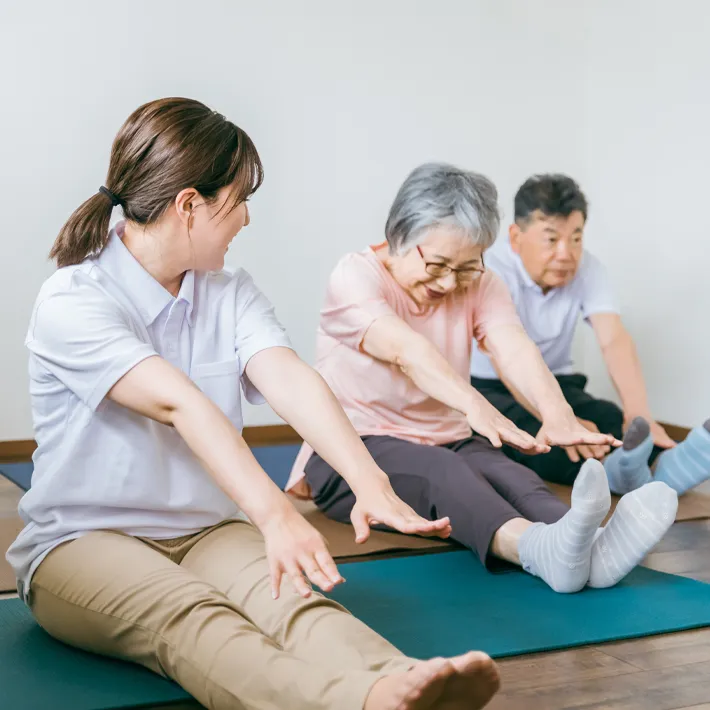
Employment may be found in the areas of pediatrics, mental health, hospitals, community settings, long-term care, rehabilitation, and corrections.
Accreditations & Certifications
Therapeutic Recreation Ontario
Currently, the registration designation of R/TRO (professionals with a degree) or R/TRO DIP (professionals with a diploma) is a voluntary credential intended to recognize a level of excellence.
It is anticipated that the Government of Ontario will move toward regulation of this profession, but that is not expected for a number of years.
When regulation does occur, the R/TRO DIP designation may represent the minimum criteria necessary. At present, even though it is not provincially mandated, some employers do require R/TRO designation for hiring.
Fees Associated with Therapeutic Recreation Ontario
- Therapeutic Recreation Membership (optional)
- Professional Membership - $180 per year
- Associate Membership - $150 per year
- Therapeutic Recreation Ontario Registration - R/TRO DIP
- Initial Registration Fee - $165
Become a Member
Looking for Support After Graduation?
The International Graduate Services & Support Centre (GSSC) is a place dedicated to assisting International alumni as they seek employment and settle into Canadian life following graduation.
Post-Graduate Employment
International students who successfully complete their programs of study at Lambton College may be eligible to apply for a Post-Graduation Work Permit (PGWP) Program. This program allows students to gain valuable Canadian work experience.
A work permit under the PGWP may be issued for the length of the study program, up to a maximum of three years. A post-graduation work permit cannot be valid for longer than the student's study program, and the study program must be a minimum of eight months in length. The length and approval of the PGWP is determined solely by Immigration, Refugees and Citizenship Canada (IRCC).
Students must meet the eligibility requirements to apply for a post-graduation work permit.
Immigration Regulations & Changes
Immigration regulations are legislated by the Federal Government of Canada and are subject to change at any time without notice. Students are responsible for ensuring that they are in compliance with all Immigration, Refugees and Citizenship Canada regulations at all times during their studies and while in Canada. Lambton College staff are not authorized to provide advice or guidance on immigration-related matters. Prospective applicants and current students should consult the Immigration, Refugees and Citizenship Canada website or call the IRCC Call Centre at 1-888-242-2100 to answer or clarify any immigration-related questions or information.
Placement
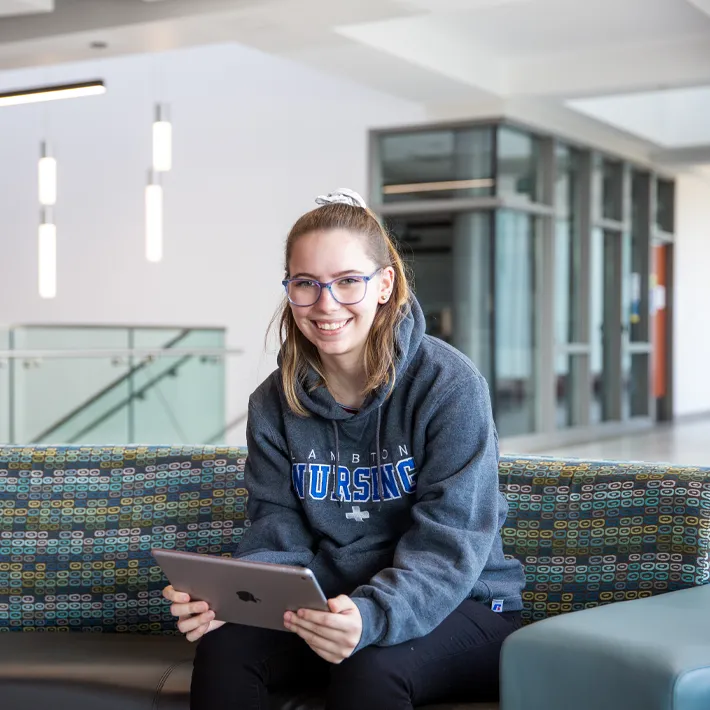
Vaccinations & Police Record Checks
Students considering this program should be aware that there may be field and clinical placement requirements. Many placements require students have proof of certain vaccinations and police record checks.
Once you’ve applied, you can log in to mylambton.ca and view the program-specific Field & Clinical Placement Requirements. If you need information about these requirements before applying, please contact placementinfo@lambtoncollege.ca.
More Information
Student Responsibilities
- Course and program delivery schedules are proposed and subject to change for each intake.
- Students are required to bring their own laptop with wireless capability.
- Students are advised to bring an official copy of their most recent police clearance, driver's license, and vaccination record from their home country.

Technology Requirements
It is recommended that students purchase a laptop with a Windows operating system.
Internet Speed Requirements
For best performance for students learning remotely, an internet connection with a minimum of 40 Mbps download and 10 Mbps upload speed is recommended in order to effectively use video conferencing and remote lecture delivery software as well as, other online resources remotely. Due to the large area over which students may be dispersed, we are unable to recommend a specific provider, so you will need to inquire around your area to find one that best suits your needs.
Minimum Laptop Requirements
In order to access the internet and virtually-delivered software and courseware, student laptops should include the following at a minimum. By meeting the following specifications, students will be equipped to access software and courseware on their laptop through the internet:
- Intel i5 8th Gen Processor or equivalent
- 16 GB of RAM (with a minimum of 8 GB)
- 100 GB HDD or more
- HD Graphics
- Webcam with a microphone
- Wireless 802.11n/ac 5ghz capable
- Windows Operating System (Windows 11)
Please note that Chromebooks and MacBooks may not support all software required for your program; students should verify compatibility with their professors.
Software
To ensure students are getting the most our of their classroom experience, some software will be required.
Lambton College has made this software easily accessible online. Students can leverage our Microsoft Office 365 software packages and services. In addition, much of the software you require for your courses will be available on demand for use on any device - on or off campus.
